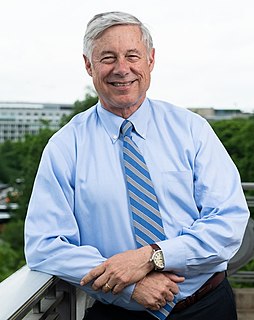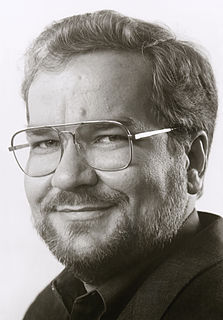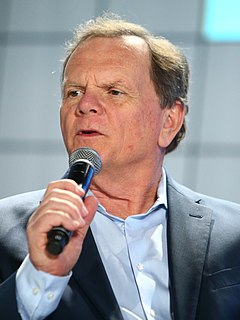A Quote by Ajit Pai
Entrepreneurs are constantly developing new technologies and services. But too often, they're unable to bring them quickly to market for consumers because regulatory inertia stands in the way. Unfortunately, the FCC can suffer from this government-wide problem.
Related Quotes
New information and communications technologies can improve the quality of life for people with disabilities, but only if such technologies are designed from the beginning so that everyone can use them. Given the explosive growth in the use of the World Wide Web for publishing, electronic commerce, lifelong learning and the delivery of government services, it is vital that the Web be accessible to everyone.
f the government is going to put money into the automobile sector, it should break up GM and Chrysler as a condition of financial aid, and it should be even-handed in its treatment of start-up firms like Tesla, Miles, Fisker, and others. It would be terrible to kill the entrepreneurs who have taken great risks to bring new automotive technologies to market by pumping tax dollars into the behemoths that have done everything wrong for the last years.
Government is not a solution to our problem, government is the problem. ... Government does not solve problems; it subsidizes them. Government's view of the economy could be summed up in a few short phrases: If it moves, tax it. If it keeps moving, regulate it. If it stops moving, subsidize it. ... The problem is not that people are taxed too little, the problem is that government spends too much.
The pace of change for entrepreneurs is rapidly accelerating, and the cost and risk of launching a new business and getting off the ground is just amazing. The ability to gain user feedback really quickly and adapt to what your consumers want is totally different with the web as it is now. But finding a new market, helping people and taking that original idea and turning it into a business is really exciting right now.
Even as the government dominates the headlines, private entrepreneurs are busy every day working to improve products and services that improve our lives. They do it without taxing us or regulating us, or making us suffer through tedious elections or political debates. They make their products and offer them to us in a way that pleases the consuming public the most. We can choose whether we want them or not.
We need scientists to design new fuels. We need farmers to help grow them. We need engineers to invent new technologies. We need entrepreneurs to sell those technologies. We need workers to operate assembly lines that hum with high-tech, zero-carbon components. We need builders to hammer into place the foundations for a clean energy age. We need diplomats and businessmen and women, and Peace Corps volunteers to help developing nations skip past the dirty phase of development and transition to sustainable sources of energy. In other words, we need you.
If old consumers were assumed to be passive, then new consumers are active. If old consumers were predictable and stayed where you told them, then new consumers are migratory, showing a declining loyalty to networks or media. If old consumers were isolated individuals, then new consumers are more socially connected. If the work of media consumers was once silent and invisible, then new consumers are now noisy and public.
Economic growth and environmental preservation are two sides of the same coin. There's no better illustration of that point than the California Clean Tech Open, which challenges California entrepreneurs to bring new, clean technologies to market. I encourage business leaders, policy makers, and environmental advocates to support this innovative, exciting competition.
While big-business leaders and firms can be highly productive, servants of consumers in a free market economy, they are also all too often, seekers after subsidies, contracts, privileges, or cartels furnished by big government. Often, business lobbyists and leaders are the sparkplugs for the statist, interventionist system.




































